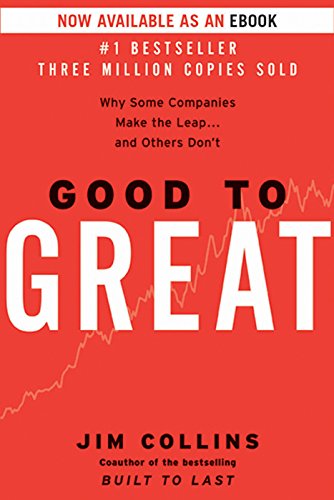

This article is an excerpt from the Shortform summary of "Good to Great" by Jim Collins. Shortform has the world's best summaries of books you should be reading.
Like this article? Sign up for a free trial here .
What is a “stop doing” list? Why is it an essential tool for business?
A “stop doing” list is a list of things you or your company are not going to do. It’s a counter-intuitive technique for maintaining an organization’s discipline from Jim Collins’s book Good to Great.
We’ll cover the benefits of the “stop doing” list and why it can be more effective than a “to-do” list, from Jim Collins’s Good to Great.
The Benefits of the “Stop Doing” List
Companies as well as individuals are inclined to create “to-do” lists—tasks and goals they hope to accomplish in the future.
Good-to-great companies make “to-do” lists as well, to be sure, but they also make “stop doing” lists.
Faithful and rigorous use of the three circles and the fanatic pursuit of the resultant Hedgehog Concept mean that some actions of the company—those that lie outside the three circles—will become obsolete. This is why you need “stop doing” lists.
Hence budgeting becomes a question not of allocating funds to all existing departments and initiatives, but rather deciding which functions of the company contribute to the Hedgehog Concept and which don’t. If an activity doesn’t serve your Hedgehog Concept, you should stop doing it. Put it on your “stop doing” list.
Darwin Smith, CEO of Kimberly-Clark, for example, had a revolutionary “stop doing” list. He quit releasing annual earnings forecasts, because he saw them as detrimental to his long-term vision. He did away with job titles (except in cases where the outside world demanded them), because he perceived that managers were sapping resources based on title rather than need. And, most important, he stopped producing paper, switching the company’s core business over to consumer goods in accordance with his Hedgehog Concept.
The “Stop Doing” List Creates a Disciplined Company
With a Level 5 leader, the right people, and a Hedgehog Concept in place, creating a culture of discipline becomes a matter of nudges rather than shoves. A “stop doing” list can help a company go from good to great.
As a general definition, discipline in an organization means a fanatical devotion to hedgehog thinking—the use of the three circles for any action and constant referral to the Hedgehog Concept.
In practice, a disciplined culture features four attributes:
- A balance of freedom and responsibility for individual managers
- Self-disciplined people intensely focused on achieving the organization’s goals
- A rigorous executive, not a tyrannical one
- A quasi-religious adherence to the Hedgehog Concept, supplemented by a robust “stop doing” list
Freedom Within Limits
Good-to-great companies, consistent with their Hedgehog Concept, build frameworks within which individual managers have the liberty to innovate and experiment. The “stop doing” list helps provide limits.
That freedom, however, doesn’t preclude accountability—managers must continue to perform at the level demanded by the company framework.
Intense Self-Discipline
In a good-to-great company, managers at every level employ the three circles and refer repeatedly to the Hedgehog Concept. Their understanding of and devotion to the company mission means they’ll police themselves, cutting waste and making sound decisions. A “stop doing” list can help managers prioritize their time in the right way.
———End of Preview———

Like what you just read? Read the rest of the world's best summary of "Good to Great" at Shortform . Learn the book's critical concepts in 20 minutes or less .
Here's what you'll find in our full Good to Great summary :
- The 3 key attributes of Great companies
- Why it's better to focus on your one core strength than get spread thin
- How to build a virtuous cycle, or flywheel effect, in your business






